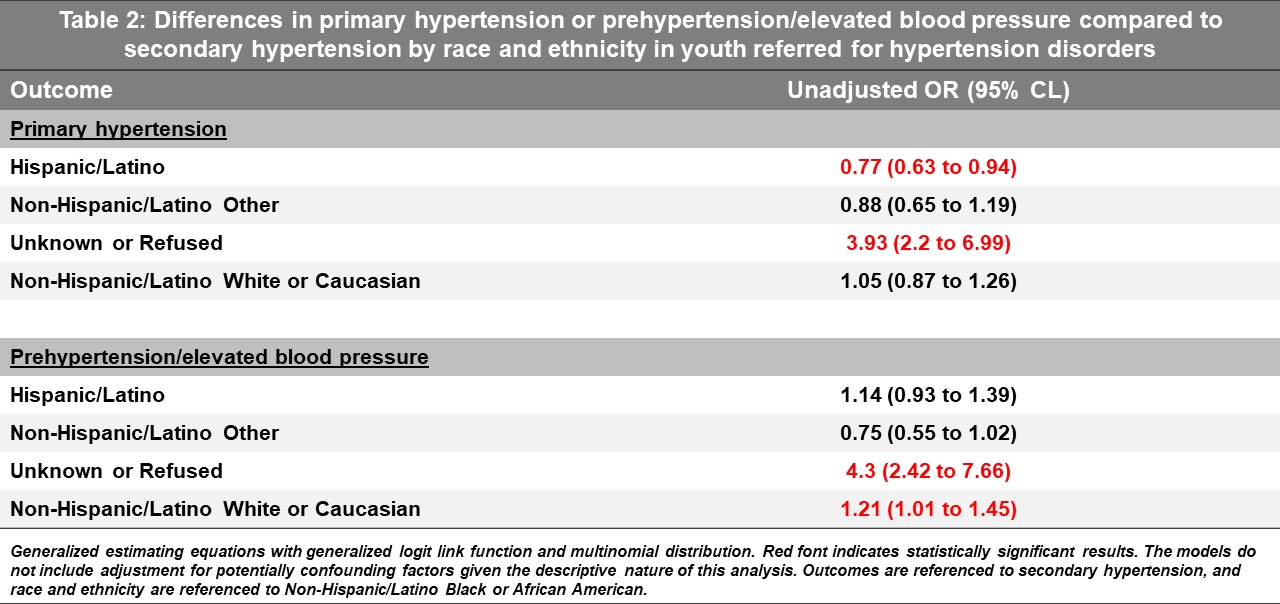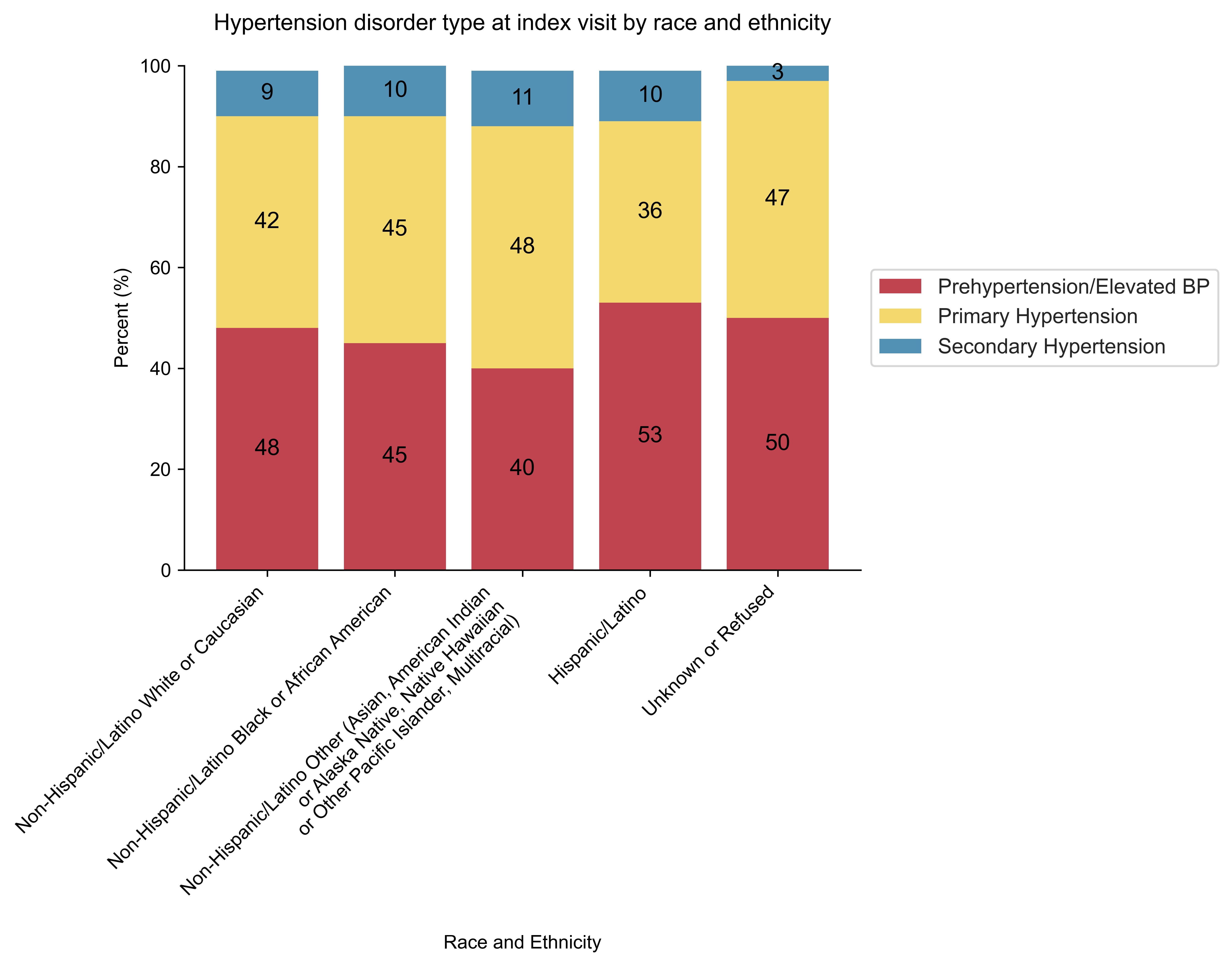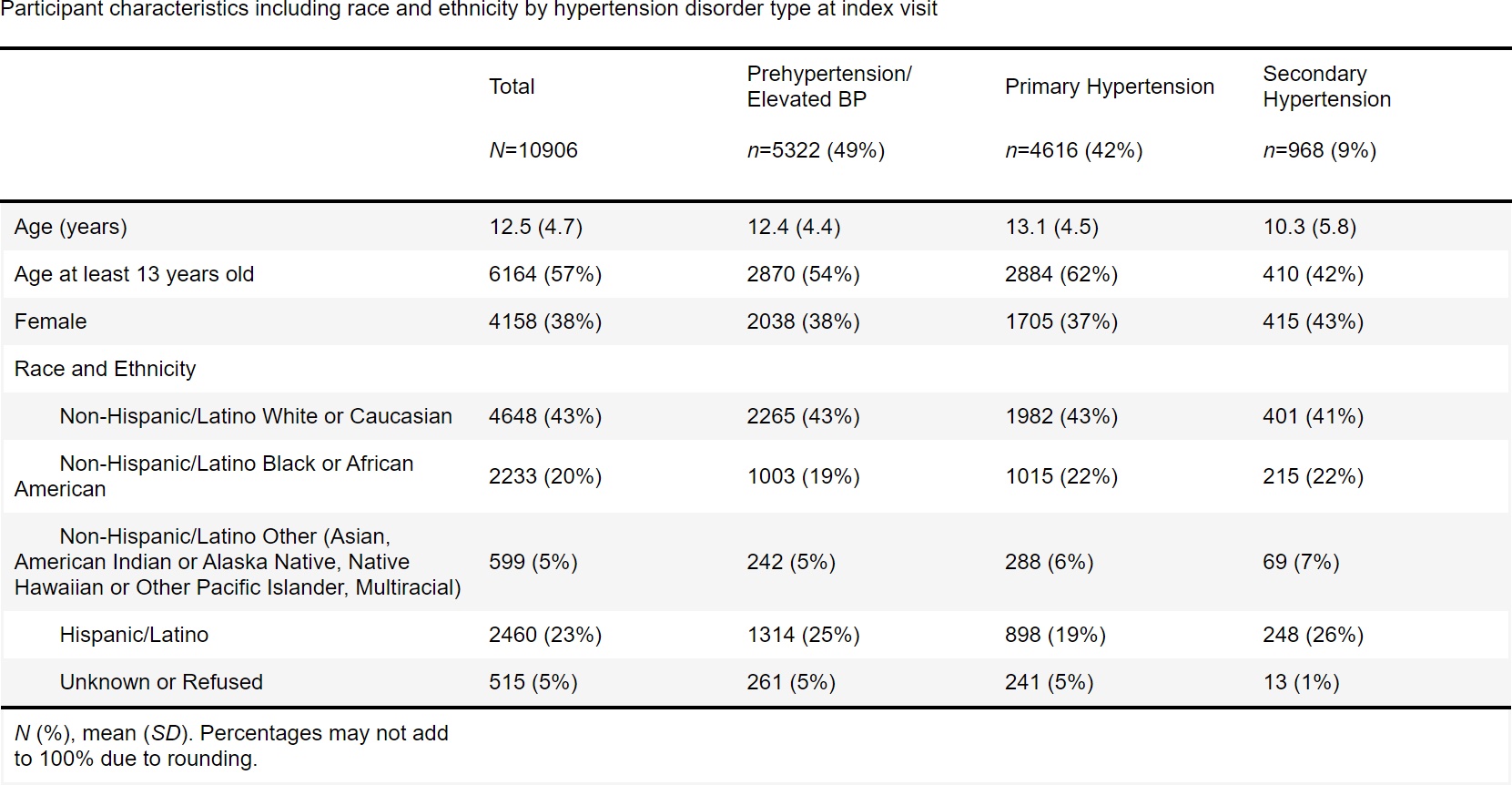Children with Chronic Conditions
Session: Children with Chronic Conditions 3
298 - Variation in Hypertension Disorder Type by Race and Ethnicity in Youth Referred to Subspecialty Care
Friday, May 3, 2024
5:15 PM - 7:15 PM ET
Poster Number: 298
Publication Number: 298.255
Publication Number: 298.255
- AP
Ashna Pudupakkam, MD (she/her/hers)
Pediatric nephrology fellow
Baylor College of Medicine
Houston, Texas, United States
Presenting Author(s)
Background: Variation in race and ethnicity has been associated with hypertension disorders in adults. Previous studies have demonstrated a higher prevalence of hypertension in African American adults. The variation in race and ethnicity in youth referred for hypertension disorders is unclear.
Objective: To determine the variation in race and ethnicity in youth referred for hypertension disorders.
Design/Methods: Cross-sectional analysis of baseline data from the Study of the Epidemiology of Pediatric Hypertension (SUPERHERO), a multisite Registry that retrospectively collects electronic health record data validated by manual record review. We included patients with ICD-10 codes for hypertension disorders at the index visit at subspecialty hypertension clinics who were aged < 19 years. We excluded patients with ICD-10 code-identified pregnancy, kidney failure on dialysis, or kidney transplantation. Our exposures were an ICD-10 code visit diagnosis for hypertension disorder at the index visit. Our outcomes were race and ethnicity. We used unadjusted generalized linear models for this descriptive analysis.
Results: In our cohort, 42% of participants (4616 of 10,906) had a diagnosis of primary hypertension using ICD-10 codes. Compared to participants who are Non-Hispanic Black or African American, participants who are Hispanic/Latino have lower odds of primary hypertension. Participants who have an unknown race or ethnicity or who refused to answer had higher odds of primary hypertension compared to secondary hypertension.
Conclusion(s): We found there was significant variability in race and ethnicity associated with hypertension disorders in youth referred for subspecialist care. In future studies, we plan to investigate the association between race and ethnicity with variation in pharmacologic management and target organ injury in youth referred for hypertension.



